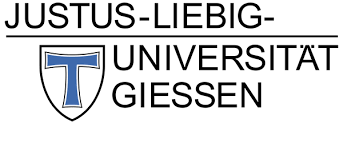APDOC take their school program to Kenya!

After a first trip to the Ivory Coast in 2022, the organisation Les Petit.e.s Débrouillard.e.s d’Occitanie (APDOC) returned to the African continent in September 2023. However, this time, Étienne and Zoé, their two facilitators, flew to Kenya where they stayed for 2 months!
This trip was part of the INSA (Integrated Nitrogen Studies in Africa) research project, coordinated by Paul Sabatier University in Toulouse. The INSA project focuses on the nitrogen paradox in Africa: while certain regions are polluted by too much nitrogen in the soil (nitrates, NOx, fine particles, etc.), other regions, in contrast, lack them, and consequently suffer from insufficient harvests. The aim of the INSA project is to analyse different aspects of and challenges associated with nitrogen, and includes European and African researchers from different fields of environmental and social sciences.

Since 2020, APDOC have been working with the INSA project on educational training, conference mediation and project communication. In addition to welcoming African researchers to Toulouse to learn about playful mediation of their work, APDOC also mobilises scientific facilitators. In 2021, they designed an educational course, “The Nitrogen Paradox”, composed of experiments, role-playing activities and board games about nitrogen. These educational tools are left on-site after APDOC interventions so that teachers and students can continue to use them in their community.
Ericka, from APDOC, conducted a short interview with Étienne and Zoé after their first month in Kenya:
What is the INSA project for you?
- Zoé: The opportunity to promote science and raise environmental awareness in Africa
- Étienne: A scientific research project around nitrogen in Africa
You are in Kenya for two months. Can you explain your mission to us?
- To intervene in two schools with students aged between 12 and 14 years old to discuss the nitrogen paradox. The interventions are organised in 4 sessions of 3 hours.
- To organise a science café at Alliance française in Nairobi, to exchange with the general public on the theme of nitrogen.
- To participate in a workshop for researchers from the INSA project, during which we will facilitate discussions and sharing on nitrogen.
In the month that you have been there, what has stood out to you in your contact with young people?
- Their attempts to speak to us in French.
- The large difference in the approach to teaching at the school. To cite just one example, the “good afternoon sir!” from the children at the start of each session.
What are some of the fun things that you have heard from the children?
- “Is the Eiffel Tower in Toulouse?”
- “The consequences of global warming are […] for example the Coronavirus.”
What is your program for the next few weeks?
- Finish the fourth session with the last school.
- Participate in the KALRO festival in Nairobi, during which children from each school will come and present what they have learned.
- A Science Café at Alliance française in Nairobi.
- Visit Nairobi.
- Participate in the INSA workshop, to be held in Nairobi and Wundanyi, Kenya.
- Go to the beach!
Can you explain to us what KALRO and ILRI are?
- KALRO: Kenya Agricultural and Livestock Research Organisation. It is a national organisation for scientific research on everything relating to agriculture and livestock. It has more than 80 sites in Kenya. We are in contact with the Science Centre in Nairobi, which also works on the transmission of science to schools via scientific mediators.
- ILRI: International Livestock Research Institute. ILRI is a partner of the INSA project. We were in contact with the Mazingira Centre, created by ILRI, who provided us with documentation on nitrogen in Kenya.
A short word about the country and the people you have met?
- Everyone is very welcoming and happy to meet us.
- There is a lot of plastic and rubbish everywhere.
- Christianity is very present with, among other things, church songs every Sunday from 8 a.m. to 3 p.m.
What do people eat in Kenya? It is hot? Is it difficult to facilitate workshops in English?
- People eat mainly meat, but also a lot of “Ugali” (mashed corn), legumes (peas, beans) and fruit. There is also a wide variety of rice.
- We are in the middle of the rainy season, so we have at least some rain each afternoon, with temperatures between 20°C and 25°C during the day, and 15°C in the evening and night.
- One of us has little trouble speaking, but finds it difficult to understand English, especially when spoken by the children. For the other, it is the opposite, so we compliment each other well!
What do the children react most to in your activities? What intrigues them the most?
- In one of the schools, young people were especially interested in greenhouse gases and their consequences.
- In the other, atoms and molecules were a real success.
**This article is a translation of an article by Ericka from les Petits Débrouillards Occitanie (APDOC), originally published in French on the APDOC website.**



















